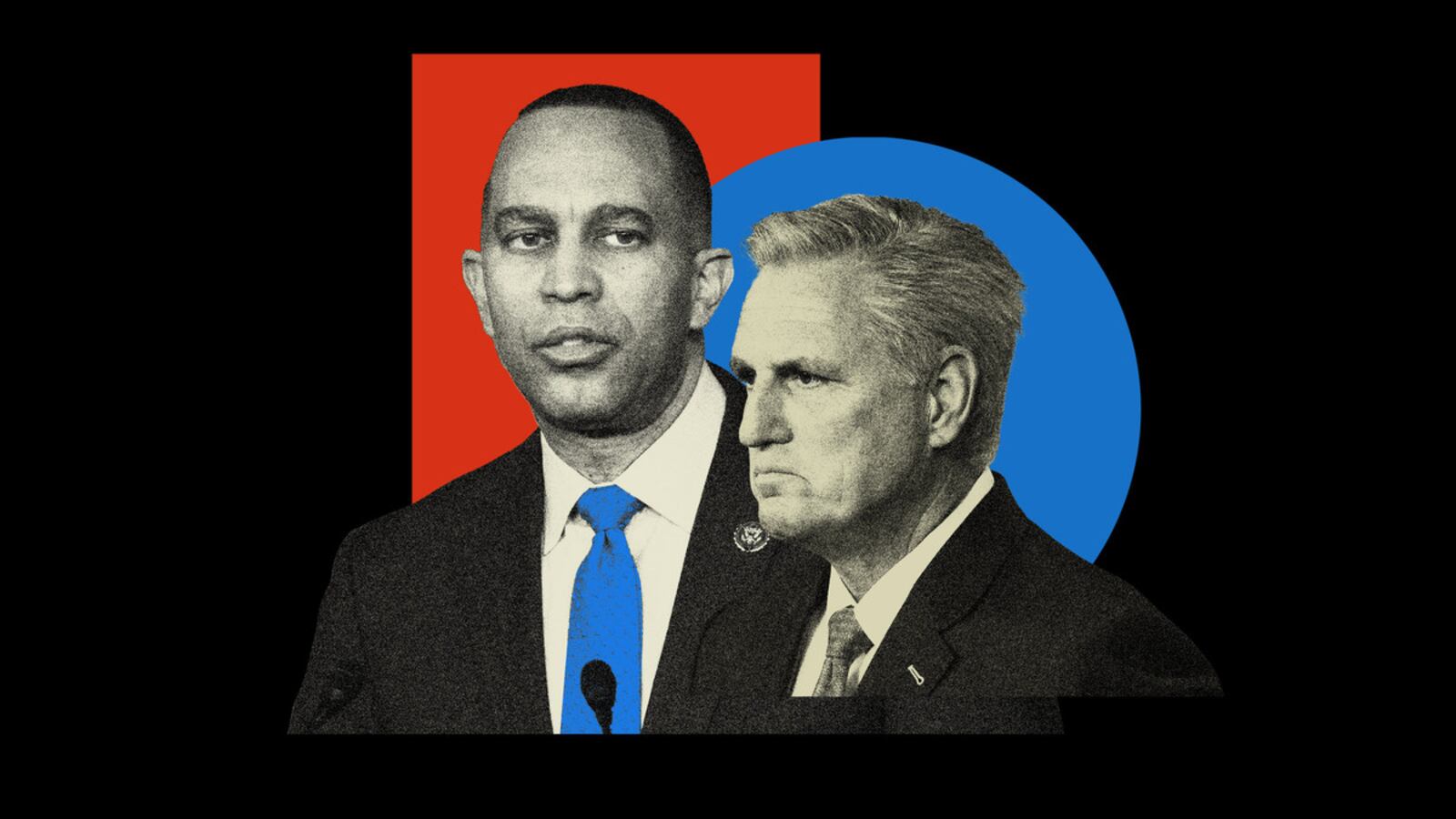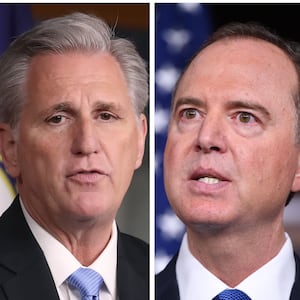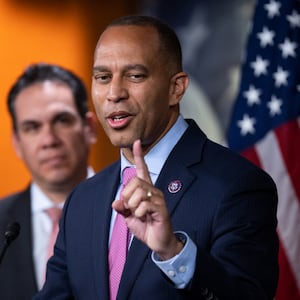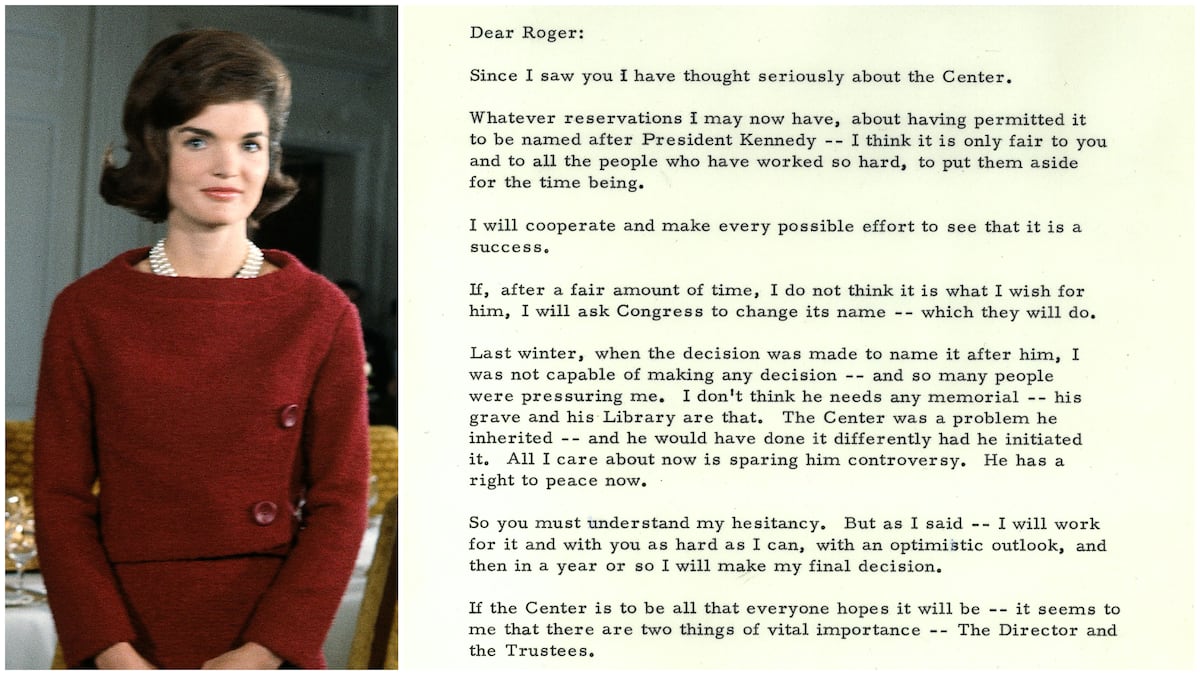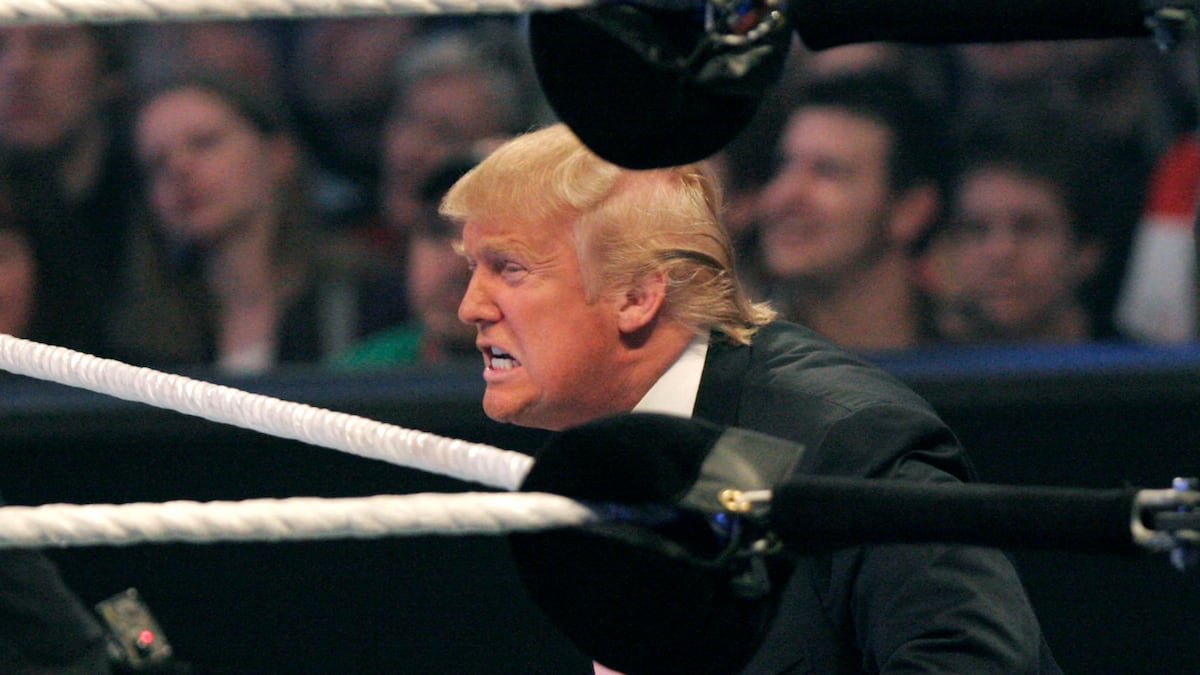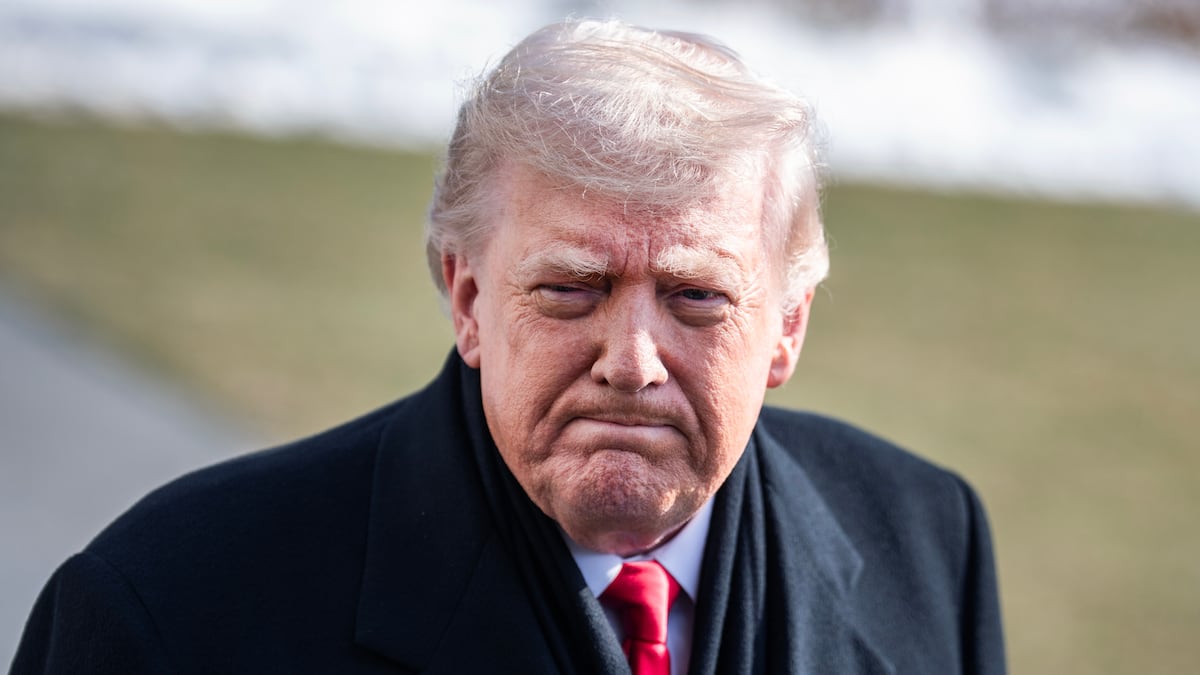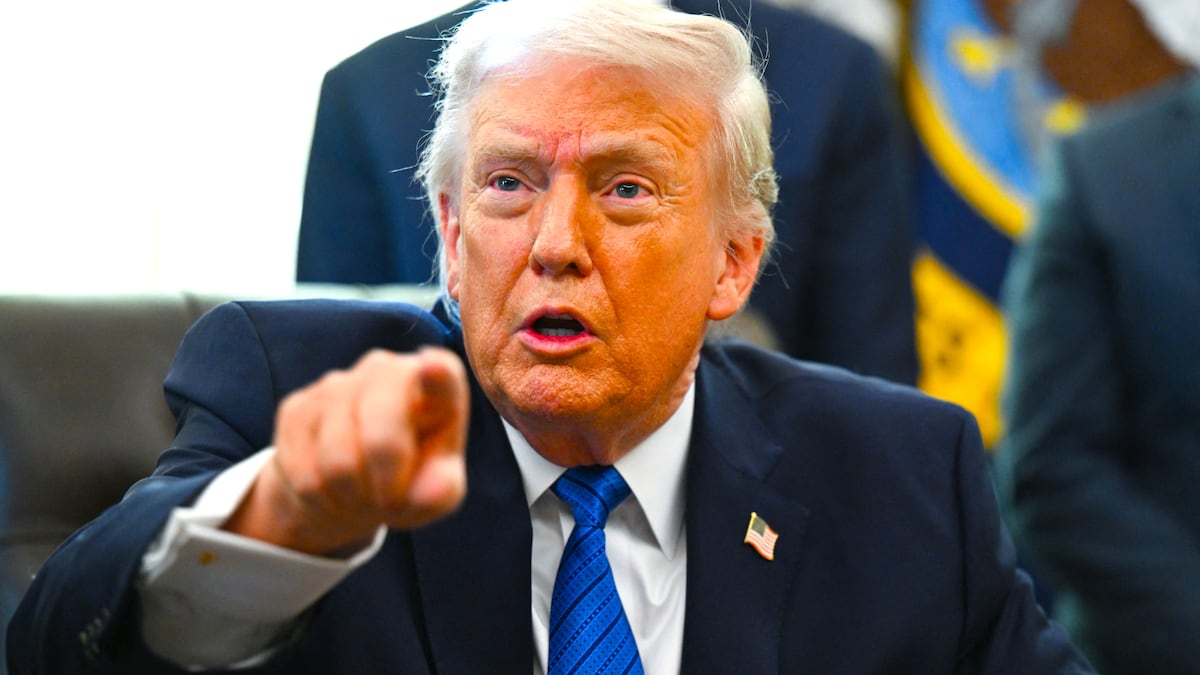It’s a new era of leadership in the House of Representatives, but the problems will be the same—maybe even worse.
On the right, Rep. Kevin McCarthy (R-CA) is set—maybe—to ascend to the role of speaker. On the left, Rep. Hakeem Jeffries (D-NY) is virtually guaranteed to become the minority leader for House Democrats.
The move would make two fiftysomething men, both long been rumored for the top spots, the heads of their respective sides of the House chamber.
Just don’t expect them to be chummy about it.
In a past life of Congress, new leadership may have meant a fresh start. McCarthy and outgoing House Speaker Nancy Pelosi (D-CA) were never on remotely good terms—even as they hailed from the same state and spent years leading their respective caucuses at the same time. The Jan. 6 attack on the Capitol only further strained their already tortured relationship.
McCarthy didn’t even attend Pelosi’s highly anticipated floor speech when she ultimately announced she would not seek the leadership role again. Many other Republicans did show up, including Steve Scalise (R-LA), No. 2 in the GOP House leaderhip. McCarthy complained that he had been busy and had no heads-up that her speech was going to be such an event.
In other words, it was Pelosi’s fault he didn’t show up—not his.
Jeffries and McCarthy don’t have the same bitter history. But that doesn’t mean they’re on perfect terms: Jeffries has openly criticized McCarthy’s leadership in the past as the divides between Democrats and Republicans in Congress deepened.
As one senior GOP aide put it, Democrats’ capacity to work with McCarthy—and McCarthy’s interest in working with them—may be too far gone.
“The level of disdain between McCarthy and any Democrat is unlike anything I’ve ever seen. They have to have a working relationship to some degree but it appears no Democrat wants to be in the same room as McCarthy, and McCarthy doesn’t want to be in the same room as any Democrat,” the aide said.
The aide continued that, for the benefit of both parties, “that dynamic has to change.”
Given the margins of the upcoming Congress, there will likely be some semblance of a working relationship required between McCarthy and Jeffries. McCarthy will be overseeing such a slim majority—with such a vocal group of far-right members—that bills like keeping the government running, which will also have to pass a Democratic Senate and be signed by a Democratic president, are almost certain to require bipartisanship in the House.
Jeffries said on CNN earlier this week that he has not spoken to McCarthy recently. He suggested he has a “warmer” relationship with Scalise, whom the Republican conference recently nominated to be their new majority leader.
But Jeffries didn’t rule out working with McCarthy and Republicans altogether.
“I look forward to working whenever and wherever possible… with the entire House Republican conference and the leadership team to find common ground to get things done for everyday Americans to make progress,” Jeffries said, before issuing a word of caution.
“But of course we will fiercely and vigorously oppose any attempts at Republican overreach and any Republican extremism. And I’m hopeful that the Republican leadership will take lessons away from the rejection of extremism by the American people all across the land and not double and triple down on it in the next Congress.”
Jeffries, who served four years as chair of the House Democratic Caucus, has worked with Republicans in committee, including on policy issues like sentencing reform, copyright reform, and the First Step Act—a criminal-justice reform package that passed while Republicans held the House in 2018. Republicans have spoken highly of his work on bipartisan legislation.
Those relationships could give Jeffries some leeway with Republicans under McCarthy’s leadership.
Then again, McCarthy’s role is still much more up in the air than Jeffries’.
Asked on CNN whether he thinks McCarthy is fit for the role of speaker, Jeffries said that’s not his decision. But he was quick to point out that McCarthy “does seem to be struggling to get to 218.”
“Let’s see what happens on January 3,” he added.
McCarthy is indeed struggling to retain the support he needs to be fully elected speaker on Jan. 3. Five Republicans in the House—Reps. Matt Gaetz (FL), Bob Good (VA), Andy Biggs (AZ), Matt Rosendale (MT) and Ralph Norman (SC)—have all indicated they intend to vote ‘No’ on McCarthy’s speakership.
McCarthy in recent days has appeared to be ramping up his promises for what he’ll do as speaker: remove Democratic members from committees, hold congressional hearings at the border, impeach Secretary of Homeland Security Alejandro Mayorkas—all red meat for conservatives.
Of course, it’s bound to set the tone for McCarthy’s relationship with Democrats at the start of the Congress, too.
Doug Heye, a former top lieutenant for then-Majority Leader Eric Cantor (R-VA) and the founder of Douglas Media, told The Daily Beast it’s hard to guess what Jeffries and McCarthy’s ultimate relationship will be like.
While Jeffries has served in the No. 5 spot for Democrats for two terms now, he’s new to embark on the top spot. But as for whether new leadership could help quell the toxicity that's riddled the House in recent years, Heye had doubts.
“Our political rhetoric is toxic and it doesn’t look to change anytime soon. The incentive structure—financially and in the media—continues to reward extremes,” Heye said.

